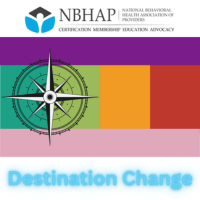Article IX: Course Standards
- The program or course content must be relevant to both the educational needs of the certified alcohol/drug counselor and the health needs of the community.
- Instructional objectives are to be stated in behavioral terms. The behavioral objectives are the basis for determining the content of the program. The objectives must denote measurable attributes observable in the student completing the program. The objectives are to explain what proficiency continuing education program participants would be able to demonstrate. Instructor’s goals are NOT behavioral objectives. For example: "To introduce the student to the community health system" is a goal of the instructor, not an institutional objective. An example of a behavioral objective is "Upon completion of this program, the counselor will be able to:
- explain the role of community education related to the effects of drug usage;
- assess the drug knowledge status of county employee groups;
- identify and evaluate the drug and alcohol education needs within the county system.
- The course content must be current and designed to include recent developments in the subject of instruction.
- Course offerings must be at least one (1) hour in length if credit is to be given.





